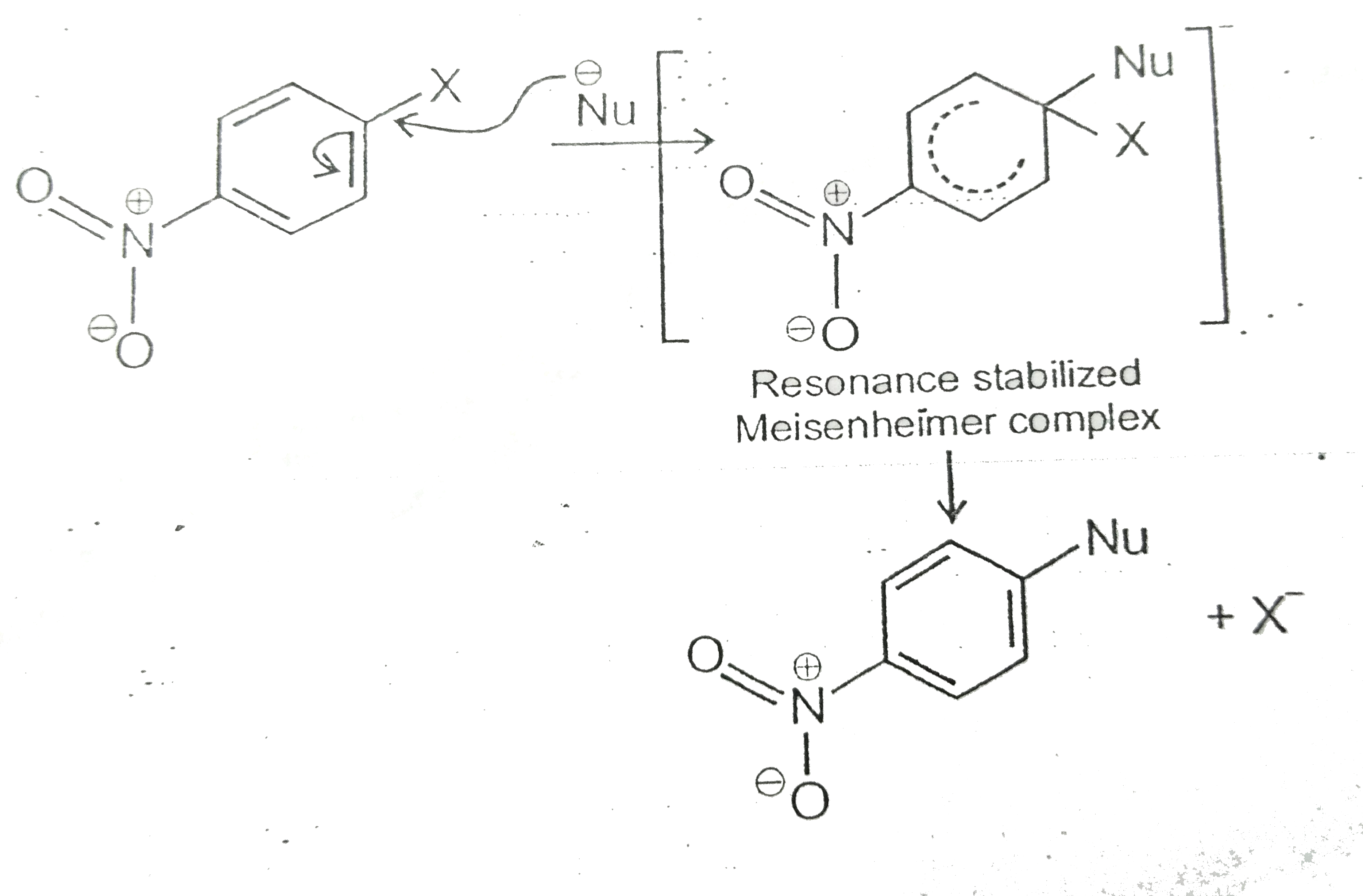Assertion p-fluoro nitrobenzene is more reactive than
p-bromo nitrobenzene in the aromatic necleophilic
substitution reaction with acqueous NaOH
Reason Addition of nuceophilie on the a-carbon of aryl
halide is the rate determing step is SNAr reaction.
Both assertion and reason are correct and reason is the
correct explanation of assertion
Both assertion and reason are correct and reason is not the
correct explanation of assertion
Assertion is correct but reason is incorrect.
Assertion is incorrect but reason is correct.
The correct Answer is:A
Step by step video, text & image solution for Assertion p-fluoro nitrobenzene is more reactive than p-bromo nitrobenzene in the aromatic necleophilic substitution reaction with acqueous NaOH Reason Addition of nuceophilie on the a-carbon of aryl halide is the rate determing step is S_(N)Ar reaction. by Chemistry experts to help you in doubts & scoring excellent marks in Class 12 exams.
Updated on:21/07/2023Topper's Solved these Questions
Similar Questions
Bacause of the resonance stabilization of Arylhalides they are unreactive toward normal nuclephilic substitution reactions . However arylhalides having strong electron withdrawing groups at ortho and para positions give aromatic nucleophilic substitution reactions (SNAr mechanism ) , which involves a resonance stablilized carbanion called Meisenheimer complex

Which arylhalide is most reactive toward SNAr mechanism ?
View Solution(i) Why are haloalkanes more reactive towards nucleophilic substitution reaction than haloarenes ?
(ii) Which one of the following two substance sundergoes SN1 reaction faster and why ?

View Solution
Knowledge Check
Assertion : Chlorobenzene is more reactive than benzene towards the electrophilic substitution reaction.
Reason : Resonance destabilizes the carbocation.AIf both assertion and reason are true and reason is the correct explanation of assertion.BIf both assertion and reason are true but reason is not the correct explanation of assertion.CIf assertion is true but reason is false.DIf both assertion and reason are false.Assertion: Aryl halides undergo nucleophilic substitution reactions with ease.
Reason:The carbon halogen bond in aryl halides has partial double bonds character.ABoth assertion and reason are correct statements, and reason is the correct explanation of the assertionBBoth assertion and reason are correct statements, but reason is not the correct explanation of the assertionCAssertion is correct, but reason is wrong statement.DAssertion is wrong, but reason is correct statement.Statement-I: Phenol is more reactive than benzene towards electrophilic substitution reaction.
Because
Statement-II: In the case of phenol, the intermediate carbocation is more reasonance stablized.ABoth assertion and reason are correct and reason is the correct explanation of the assertion.BBoth assertion and reason are correct, but reason is not the correct explanation of the assertionCAssertion is correct , but reason is incorrectDAssertion is incorrect , but reason is correct
Assertion: Primary aromatic amine can't be prepared by gabrial-pthalamaide method
Reason: aryl halide can't be undergo nucleophilic substitution reaction
View SolutionAssertion: Acetanilide is more reactive than aniline towards electrophilic substitution reactions.
Reason: The activating effect of NHCOCH3 is less than that of amino group
View SolutionAssertion: Vinyl halides are reactive towards nucleophilic substitution reactions.
Reason: Reactivity is due to the polarity of the carbon halogen bond.
View SolutionAssertion : Acetaldehyde is more reactive than acetone in nucleophilic addition reactions.
Reason Two alkyl groups in acetone reduce the electrophilicity of the carbon.
View SolutionAssertion. Propene is more reactive than ethene towards electrophilic addition reactions
Reason. Hyperconjugation effect of the CH3 group increases the electron density in the double bond
View Solution